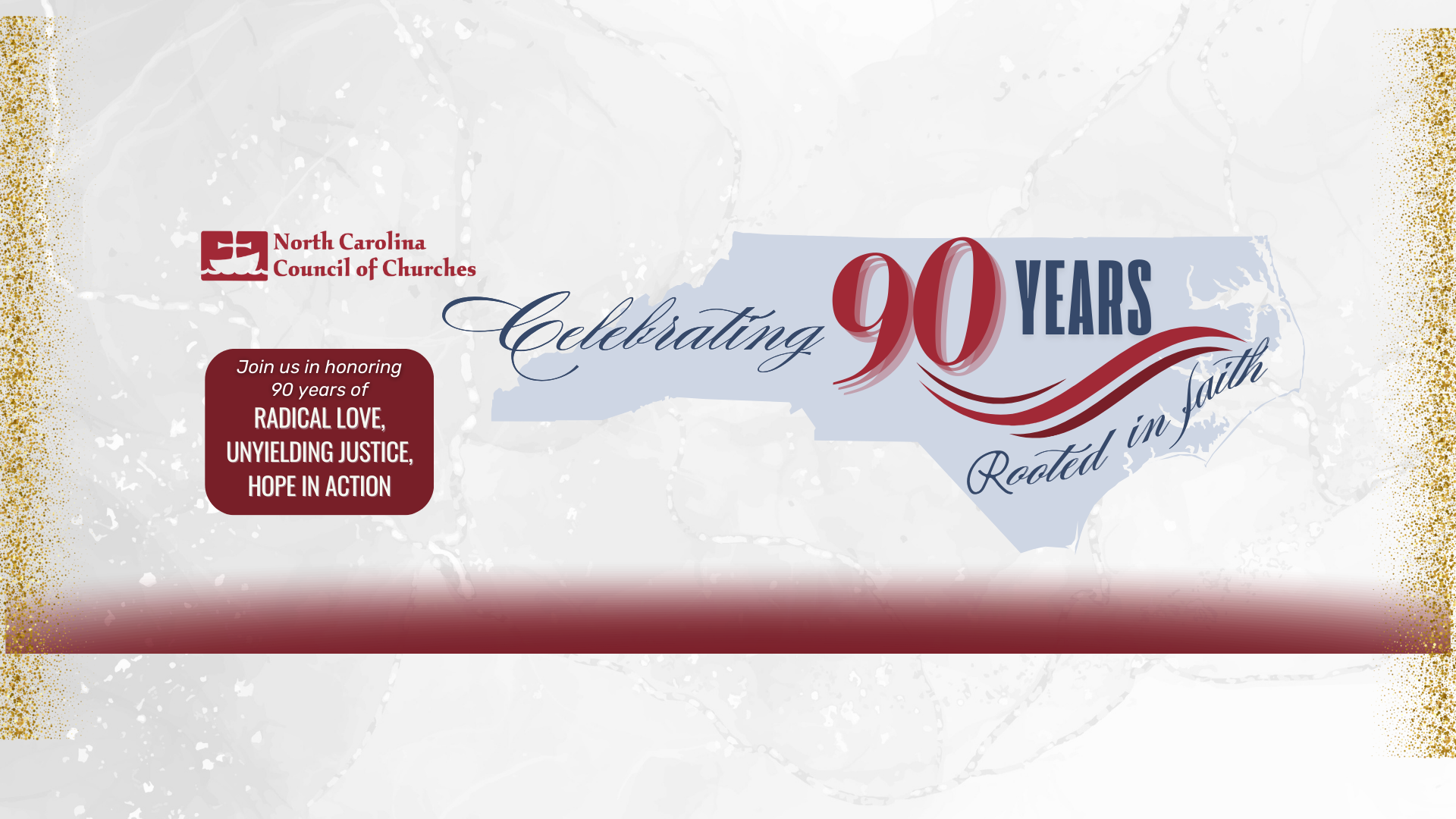As we celebrate 90 years of faithful work for justice and equity this year, we’re sharing stories of 90 Years Rooted in Faith that reflect the heart of the North Carolina Council of Churches. Each month, you’ll hear from staff and long-time friends of the Council as they highlight the transformative impacts we’ve had on our community and our vision for the future. Stay tuned for these inspiring reflections throughout the year!
It was clear to me after only a few days on the job as the new Executive Director of the Council in the summer of 2015 that I was standing on the shoulders of giants. I knew the Council, board and staff, showed up and spoke up for justice even when it was not popular. My adult life had been spent much the same way, which was a primary motivation for pursuing the position and maybe why the board hired me.
It was not until I started to work, however, that I fully understood the footprint of the Council across the state of North Carolina. My job title made me a known entity even when I had never met the people in the room. They would mention names and give specific examples of the Council’s invaluable partnership for the work they were leading. And I would think, I had no idea.
As I read through binders and sorted through files at the office, I quickly recognized the Council was in the trenches during nearly every major justice milestone occurring in the past 90 years.
- We spoke up for racial equity, called “race relations,” at our organizing meeting in 1935. Only a few years after our founding, the major historically Black denominations became members, likely making us one of the first places that Blacks and whites sat together as equals to discuss racial equity.
- A woman, Frances Query, directed the Council 1949-51, before many of our member denominations would ordain women.
- We advocated for migrant laborers in the 1950s and led the way for many of the farm labor groups that exist today.
- We supported reproductive rights, then called “therapeutic abortion,” in 1970, three years before Roe passed.
- We issued a report in the 1980s naming tobacco farming as a moral matter when smoking was still allowed in restaurants and bars. That report earned us a mention on “60 Minutes.”
Others on our staff will write about our work on the environment, criminal justice, immigration, and health care advocacy, just to name a few more places where the Council led the way for denominations and congregations. It’s quite a story.
Later that first month on the job when I met with my predecessor, George Reed, for what became regular, invaluable question and answer sessions to help smooth my transition, he asked, “How’s it going?” I took a deep breath and replied, “It’s amazing. I’m just trying not to mess it up.”
Join us in continuing this legacy of justice and courage. Your gift supports the Council’s work for equity and compassion across North Carolina. Donate today.

